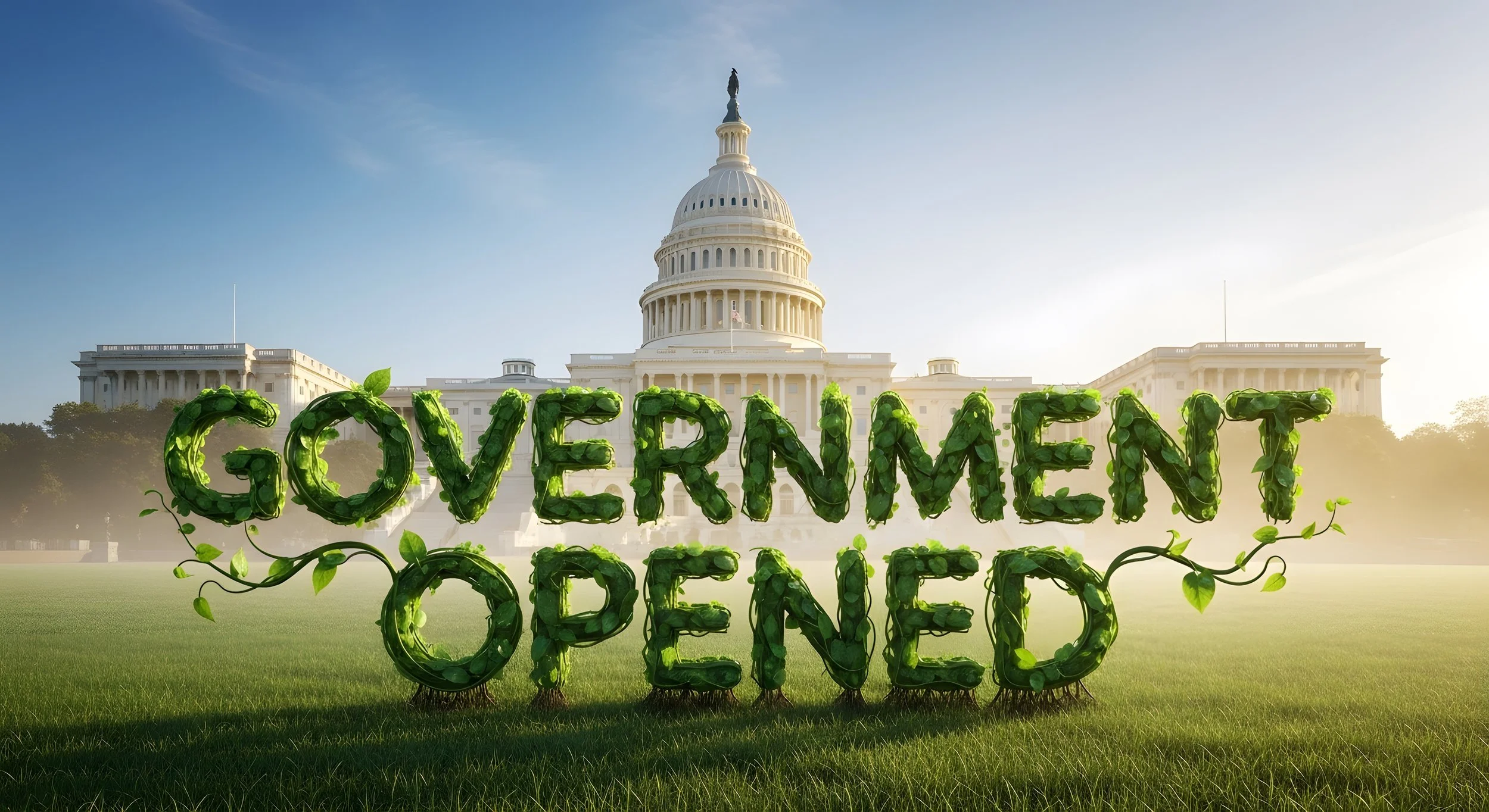Deal to Open
The U.S. government is poised to re-open after the longest shutdown in U.S. history. An end to the prolonged closure is in sight after eight U.S. Senators who caucus with Democrats (seven Democrats and one independent) voted with all but one Senate Republican to approve a bill that extends all government funding through January 30, 2026 and funds a handful of agencies (veterans’ affairs, military construction, legislative branch, and the U.S. Department of Agriculture) through the end of the fiscal year on September 30, 2026.
The bill is expected but not certain to clear the U.S. House on Wednesday. U.S. President Donald Trump called the bill a good deal while most Democrat leaders (including both House Minority Leader Hakeem Jeffries and Senate Minority Leader Chuck Schumer but excluding Senate Democratic Whip Dick Durbin who broke party ranks to support the bill) expressed displeasure with its passage.
Analysis and eternal perspective: The budget and spending process of the U.S. government is broken. It is a fact we’ve acknowledged repeatedly over the last few years, and one that remains true across all manner of partisan control. The current shutdown, even as it appears to be nearing an end, is but the most recent evidence of this fact. After six weeks of closure, the government is set to re-open . . . with no substantive changes in policy.
That last point is worth underscoring. You almost certainly have changes you would like to see made in the spending priorities of the U.S. government. Finding consensus on those preferences would certainly be challenging, but that deliberative process is what every successful business must do during its budgeting process. The U.S. government currently has no functioning mechanism for this task, as both parties have more political incentives aligned against it than for it.
There is only one force with the power to change that incentive, and it doesn’t reside in Washington, DC. It is the force of the American voters of both political parties, who will need to determine on both sides of the aisle that budgeting and spending discipline is a priority. Until this occurs, you can be assured the next shutdown is a certainty and only a matter of time.
As a Jesus follower, you can and perhaps should engage the above debate substantively. But it has been, and has the ongoing potential to continue to be, a civic space into which you can be the tangible hands and feet of Jesus. The Equipped community has all manner of perspectives on how federal programs should look. But given that disruptions as significant as this most recent one are all but certain to recur, we should band together as Jesus followers to be ready to fill those places of need.
Future disruptions are inevitable, and they won’t catch our community off guard.
“Be prepared in season and out of season” (2 Tim. 4:2).
The following article originally appeared in Thann’s “The Equipped” weekly Newsletter. For more information on Thann’s weekly email, click here.

